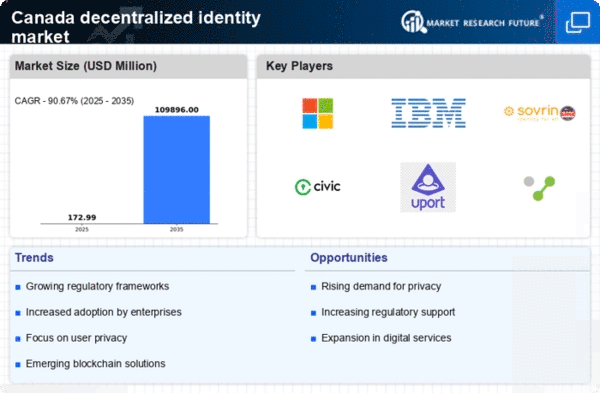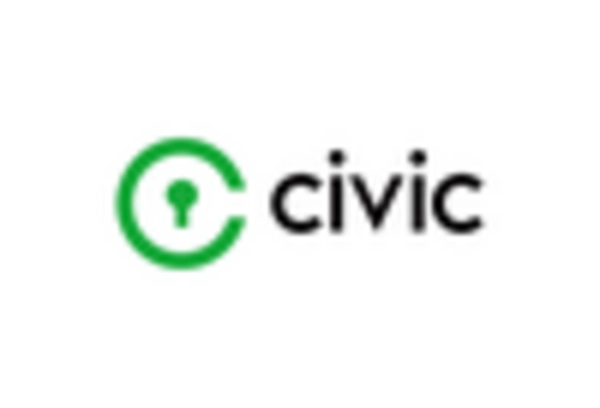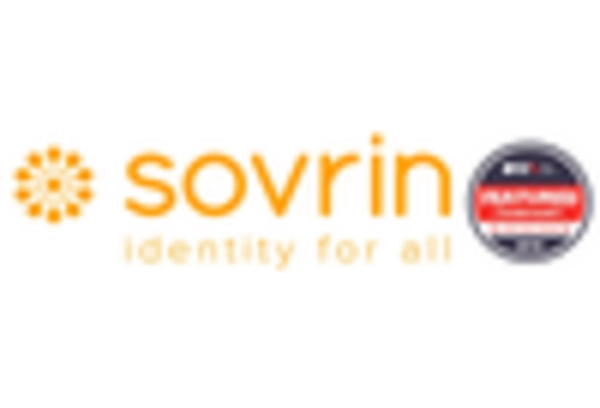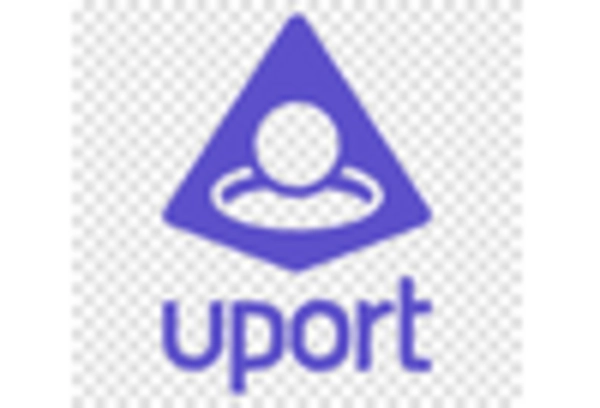Rise of Digital Services
The proliferation of digital services in Canada is significantly impacting the decentralized identity market. As more services transition online, the need for secure and efficient identity verification processes becomes paramount. The Canadian digital economy is projected to reach $100 billion by 2025, highlighting the urgency for robust identity solutions. Businesses are recognizing that traditional identity verification methods are often inadequate in addressing the challenges posed by digital interactions. Consequently, there is a growing inclination towards decentralized identity solutions that streamline user authentication while enhancing security. This trend is likely to drive innovation within the decentralized identity market, as companies seek to differentiate themselves by offering seamless and secure digital experiences.
Growing Demand for Data Privacy
The increasing awareness of data privacy issues among consumers is driving the decentralized identity market. In Canada, individuals are becoming more concerned about how their personal information is collected, stored, and used by organizations. This heightened awareness is prompting a shift towards solutions that offer greater control over personal data. According to recent surveys, approximately 70% of Canadians express a desire for more transparency in data handling practices. As a result, businesses are compelled to adopt decentralized identity solutions that empower users to manage their own identities securely. This trend is likely to continue, as the demand for privacy-centric solutions in the decentralized identity market grows, influencing the development of innovative technologies and services that prioritize user autonomy.
Increased Cybersecurity Concerns
The rising incidence of cyber threats is a major driver for the decentralized identity market. In Canada, organizations are increasingly recognizing the vulnerabilities associated with traditional identity management systems. High-profile data breaches have underscored the need for more secure identity solutions. As a result, businesses are turning to decentralized identity systems that offer enhanced security features, such as self-sovereign identity and cryptographic authentication. The decentralized identity market is likely to expand as organizations prioritize cybersecurity and seek to mitigate risks associated with identity theft and fraud. This trend indicates a growing recognition of the importance of robust identity solutions in safeguarding sensitive information and maintaining consumer trust.
Government Initiatives and Support
The Canadian government is actively promoting the adoption of decentralized identity solutions as part of its digital strategy. Initiatives aimed at enhancing digital identity frameworks are being implemented to foster innovation and improve security. For instance, the Government of Canada has allocated funding to support research and development in this area, which is expected to bolster the decentralized identity market. Furthermore, public sector organizations are increasingly exploring partnerships with private companies to develop and implement decentralized identity systems. This collaboration is anticipated to create a conducive environment for the growth of the decentralized identity market, as government backing lends credibility and encourages wider adoption among citizens and businesses alike.
Technological Advancements in Blockchain
Technological advancements in blockchain are playing a crucial role in shaping the decentralized identity market. In Canada, innovations in blockchain technology are enabling the development of more secure and efficient identity management systems. The integration of smart contracts and cryptographic techniques is enhancing the reliability of decentralized identity solutions. As organizations seek to leverage these advancements, the decentralized identity market is expected to witness significant growth. Reports indicate that the blockchain technology market in Canada is projected to grow at a CAGR of 67% from 2023 to 2028. This rapid growth suggests that the decentralized identity market will benefit from the increasing adoption of blockchain technologies, leading to more sophisticated and user-friendly identity solutions.
















